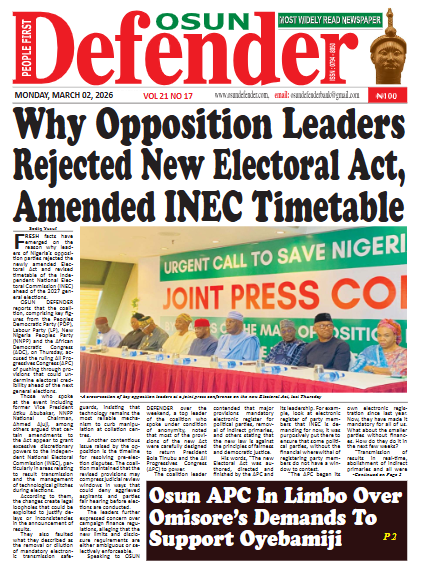Voter Education And The Protection Of Democracy

In about a week’s time, eighty four million Nigerians holding Permanent Voters Cards will exercise their right to freely chose within the privacy of the polling booth the president of their country. Making the votes count is the most important part of the democratic process. For this reason due to all manner of factors, voter education is key, both the electoral umpire [INEC] and the political parties must take this crucial function very seriously. A good example towards achieving this objective was last week’s laudable training program for its field operatives by the Buhari Support Organisation [BSO] in the southwest. We commend this part to other groups across the political spectrum.
In a keenly contested election the amount of voided votes could distort the expressed wishes of the electorate and put a question mark on the credibility and acceptability of the exercise. A good example last year’s governorship election in the State of Osun. The fact that 89% of the total voided votes of 49, 000 came from one party in this case The All Progressives Congress (APC) is cause for concern. The probability quotient of this happening anywhere in the world is nil. The figure is profoundly disturbing. For a start, invalidated votes in common sense should reflect the overall composition of the election figures, after All the voters are from within the same communities, have roughly the same educational background and are composed of the same demographic segmentation.
There is clearly an indication of something untoward going on here. A comparative analysis of voided votes in previous elections shows clearly that it was evenly spread and closely reflected the dispersion of votes in the final figures. Frankly, there is something outrageous about this invalidation pattern. As the Chairman of BSO in the southwest Prince Felix Awofisayo sensibly pointed out, “…. it simply doesn’t make sense to say that APC Voters have lower literacy or are less coordinated “. He is also correct in forewarning that with about seventy presidential candidates on the ballot, the ballot paper will be cumbersome. The work of voter education therefore must be extended to all the stakeholders including the electoral commission and indeed the security forces, the election observers both local and international must also be vigilant. For the political parties voter education must be merged with political mobilisation. We are in full agreement with Prince Awofisayo that all tools of enlightenment frameworks must be deployed.
Monitoring on the day of the election is also important. For equally disturbing is the issue of multiple registrations leading to multiple voting. Verified multiple registrations were over 4,835 in the Osun governorship election. This is a source of concern, for with the last minute rush to collect PVCs the issue could balloon out of control.
We therefore enjoin all to take the issue of voter education and enlightenment very seriously.








